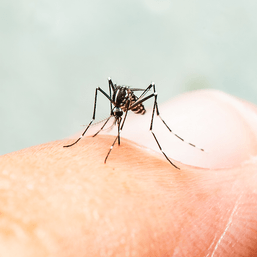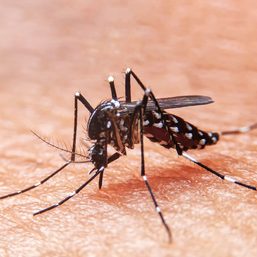SUMMARY
This is AI generated summarization, which may have errors. For context, always refer to the full article.

GENERAL SANTOS, Philippines – Officials in South Cotabato’s capital, Koronadal City, have unveiled a technology-driven initiative to enhance pet ownership practices and reduce the prevalence of stray dogs and the associated risk of rabies in the city.
The City Veterinary Office (CVO) in Koronadal City said microchip implants would be used to serve as tamper-proof identification data storage for pets in line with the anti-rabies campaign.
Measuring about the size of a grain of rice, the microchip will be subcutaneously injected into dogs.
Using radio-frequency identification (RFID) technology, the microchip will store essential information such as the dog’s name, owner’s details, breed, age, owner’s address, vaccination records, and other pertinent information in line with the Anti-Rabies Act of 2007, which mandates dog registration.
Dr. Charlemagne Calo, head of CVO, said the innovative system will be formally launched in early October, making Koronadal the pioneer among local governments in the Soccsksargen region.
While the microchip implants will not be provided for free, with each chip costing P400, the city government is contemplating a funding mechanism to support the initiative.
Calo, however, said the microchip is not a tracking device and cannot be used to locate missing pets. Instead, it serves as a deterrent to pet theft and aids in tracing dog ownership.
“Do not mistake it for a GPS or a tracking device because it is not,” Calo said.
He said this will encourage dog owners to ensure their pets are vaccinated against rabies, thereby reducing the risk of infections.
Calo said domestic dogs are responsible for 99% of reported cases of rabies transmission to humans. Vaccinating dogs is a highly cost-effective strategy to prevent rabies, and the CVO has been actively vaccinating pet dogs in the city, with over 12,353 vaccinated from January to September.
Considering the city’s estimated dog population of around 20,000, Calo said the microchip implant scheme will be implemented gradually in Koronadal City’s 27 barangays.
Rabies infections and animal bites have been a recurring problem in Koronadal City and neighboring towns in South Cotabato. Since 2021, there have been eight reported rabies-related deaths in Koronadal City and nearby areas.
South Cotabato previously held the unenviable record of having the highest number of confirmed rabies deaths in the Philippines in 2017, with 18 cases, followed by nine cases in 2018, eight in 2019, and six in 2020, all attributed to bites from unvaccinated dogs.
In 2021 alone, over 12,500 cases of animal bites were documented.
John Arlo Codilla, rabies program coordinator at the Integrated Provincial Health Office (IPHO), said many use traditional remedies like “tandok” due to the perceived unavailability, and high cost of conventional anti-rabies medical treatments.
Tricycle driver Juanito Tol said he once brought his nephew to a tandok practitioner because they could not afford the costly treatment in hospitals.
“Anti-rabies injections are hard to find and very expensive,” he said.
Tandok is performed by faith healers who use an animal horn, supposedly to suck out the rabies from a bite wound.
Sadly, many people who undergo tandok procedures do not survive, according to Codilla.
The World Health Organization (WHO) said rabies causes nearly 60,000 human deaths worldwide each year. – Rappler.com
Add a comment
How does this make you feel?



![[Free to disagree] Ending victimhood](https://www.rappler.com/tachyon/2024/05/TL-Ending-victimhood-May-20-2024.jpg?resize=257%2C257&crop_strategy=attention)











There are no comments yet. Add your comment to start the conversation.